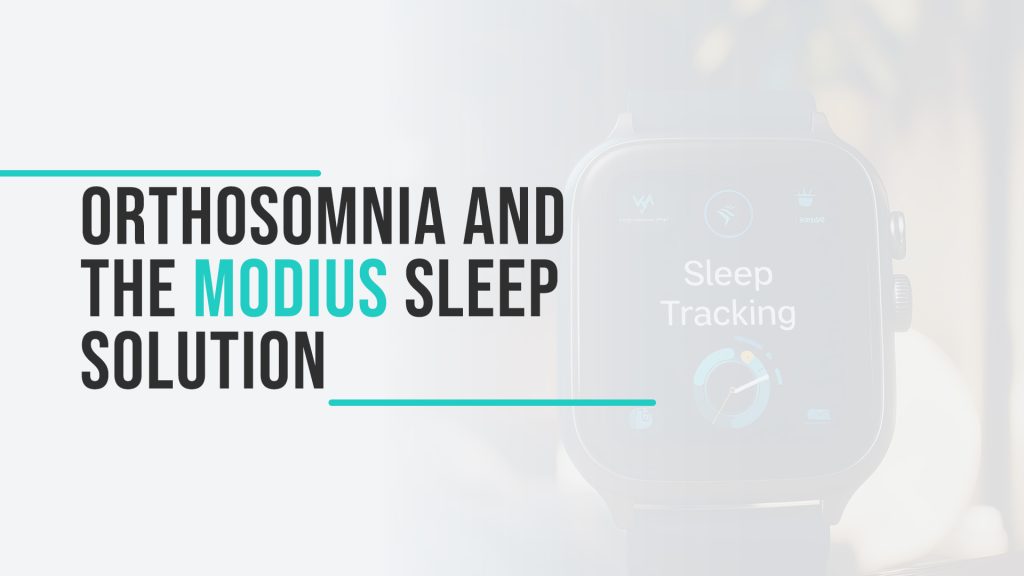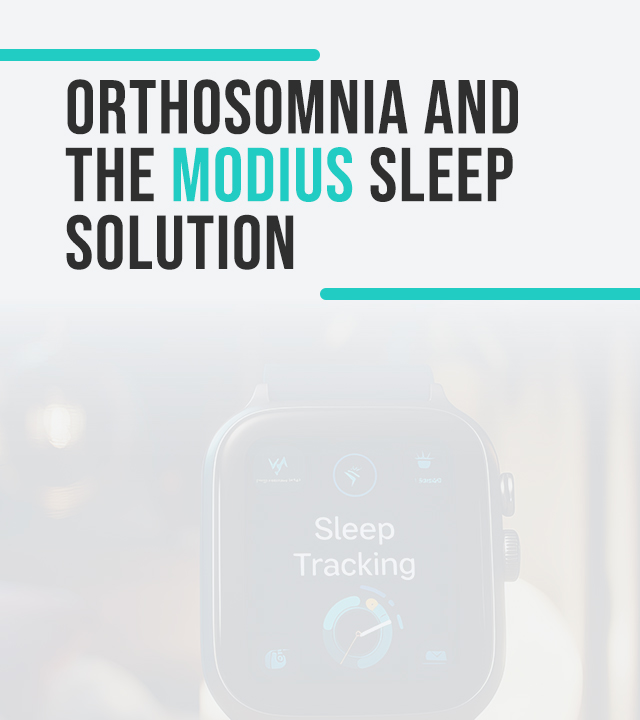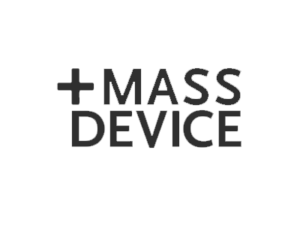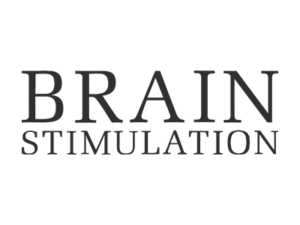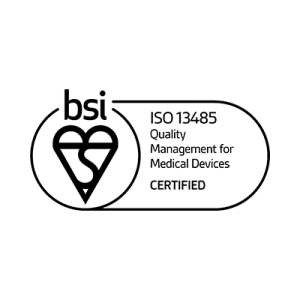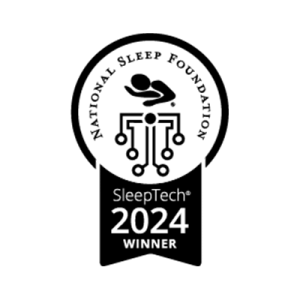Are we too obsessed with sleep tracking? The pursuit of perfect sleep has given rise to a modern-day paradox known as Orthosomnia. Occurring when our fixation on sleep data negatively impacts our rest, Orthosomnia only increases stress and anxiety, creating a vicious cycle of sleepless nights.
For those suffering from insomnia or related issues, a promising, noninvasive solution may lie in neurostimulation technology like Modius Sleep, an FDA-cleared, drug-free method to improve sleep. But how did we get here, and why is Modius Sleep the better alternative?
“Many of my patients struggle with the anxiety of not sleeping, which paradoxically keeps them awake,” explains Dr. Janet Kennedy, a clinical psychologist and sleep specialist. “Neurostimulation provides a gentle, non-pharmaceutical approach to breaking this cycle and promoting restorative sleep.
What is Orthosomnia?
Orthosomnia, first identified in 2017, refers to a chronic fixation on achieving “perfect” sleep based on data from wearable sleep trackers like Fitbits or Oura Rings. The term comes from the Greek word “ortho,” meaning “right” or “correct,” and “somnia,” meaning sleep.
Although sleep-tracking devices aim to provide valuable insights into users’ sleep patterns, they often lead to hyperfixation that detracts from natural restfulness. Research published by the American Academy of Sleep Medicine found that over one-third of Americans use sleep trackers. However, sleep specialists like Dr. Kelly Glazer Baron warn that data from these devices often lacks accuracy, leading people to worry unnecessarily about their sleep quality.
Common symptoms of Orthosomnia include anxiety about the device-reported sleep scores, attempts to modify sleep habits based on questionable metrics, and prolonged time spent in bed “chasing sleep” instead of naturally falling asleep.
The Sleep Paradox
Ironically, our obsession with improving sleep often has the opposite effect. Stress hormones are activated as you lie awake thinking about the elusive “perfect” sleep score, keeping you up longer. Sleep quality decreases, not from external factors, but from internalized pressure to perform well at sleep. It’s a paradoxical cycle that’s hard to break if your bedtime habits revolve around scrutinizing data.
Why Do People Track Sleep?
Given the risks of Orthosomnia, why are so many people tracking their sleep?
- Health and Wellness Awareness
Consumers are becoming increasingly health-conscious, and with wearable tech’s explosive popularity, tracking sleep feels like a natural extension of monitoring overall well-being. Sleep, after all, directly impacts productivity, mood, memory, and long-term health.
- Accessibility of Wearable Technology
Devices like Fitbits, Apple Watches, and Oura Rings have made sleep tracking easy and affordable. These gadgets promise to provide insights into sleep duration, stages (light, deep, REM), and even disturbances throughout the night. Such accessible tech tempts individuals into quantifying every aspect of their routine, including their shuteye.
- Desire for Improvement
For those struggling with sleep, tracking seems like a logical step toward improvement. Often, it feels empowering to gather data on sleep patterns, hoping to identify problem areas that can be resolved by changing habits or routines.
Unfortunately, as Popular Science highlights, this data is far from perfect. Many consumer-grade trackers are not equipped to provide deep insights into sleep stages, and their algorithms often fall short. What’s worse, fixating on these numbers can exacerbate existing problems, such as insomnia, breaking trust with your natural sleep rhythm.
What Should People Do Instead?
If tracking sleep isn’t the solution, then what is? Experts recommend taking a radically different approach to tackling sleep issues. Here are some science-backed alternatives to “chasing the perfect sleep score.”
- Consult a Specialist
If sleepless nights are persistent, consider consulting a certified sleep specialist. Cognitive Behavioral Therapy for Insomnia (CBT-I) is one of the most effective treatments for chronic insomnia. Unlike tracking data, trained professionals deliver a personalized plan based on individual experiences rather than metrics.
- Avoid Sleep Tracking Obsession
Take a break from sleep trackers. Instead, assess how you feel physically and emotionally after waking. Subjective insights can sometimes be better indicators of sleep health than abstract device-generated scores.
- Stick to Consistent Routines
Consistency in bedtime and wake-up time will regulate your body’s circadian rhythm, reinforcing healthy sleep cycles. Even after a bad night’s sleep, resist the urge to nap excessively or go to bed early. This keeps natural rhythms intact.
- Create a Restful Atmosphere
A dark, quiet, and cool environment is foundational for good sleep. Minimize blue light exposure from screens, especially leading up to bedtime, and incorporate relaxing activities like reading or meditation to wind down.
- Explore Noninvasive Alternatives
Complement lifestyle changes with noninvasive neurostimulation technologies like Modius Sleep, a groundbreaking, drug-free, and FDA-cleared device that directly addresses sleep quality at its root.
How Modius Sleep Provides a Noninvasive Solution
Modius Sleep offers a revolutionary solution to sleep issues without the drawbacks of tracking or pharmaceuticals. By using neurostimulation to improve sleep quality, Modius Sleep helps individuals achieve restful nights naturally and reliably.
What is Modius Sleep?
Modius Sleep is a wearable neurostimulation device designed to improve sleep with Vestibular Nerve Stimulation (VeNS), a noninvasive therapeutic method. By gently stimulating the vestibular nerve, located behind the ear, Modius Sleep sends signals to the brain’s hypothalamus to enhance relaxation and optimize the natural sleep cycle.
Key Benefits of Modius Sleep
-
- Drug Free
Unlike sleeping pills that carry risks of dependency, Modius Sleep is a drug-free solution, making it ideal for individuals seeking natural alternatives.
- FDA Cleared
Modius Sleep has undergone rigorous testing and is FDA-cleared, offering evidence-based assurance of its safety and effectiveness. (Link to Brain Stimualation)
- Neurostimulation Technology
Using gentle electrical impulses, Modius Sleep improves sleep quality by directly influencing brain pathways responsible for relaxation, reducing the need for invasive treatments or external reliance.
- Noninvasive and Easy to Use
The wearable device is lightweight, noninvasive, and requires no complex setups. Users can integrate it seamlessly into their nightly routine for maximum convenience. Worn on the head like a set of headphones, Modius Sleep is used for 30 minutes each evening before bedtime. It is not worn while sleeping.
Why Modius Sleep Stands Out
Unlike consumer-grade trackers, which often frustrate more than they help, Modius Sleep focuses entirely on enabling restful, restorative sleep without the metrics. By addressing the root causes of insomnia, such as relaxation and circadian rhythm consistency, it tackles sleep issues in a way trackers can’t.
Toward Restful Sleep Without the Pressure
Stop relying on imperfect trackers and start trusting solutions backed by science. For more information on Modius Sleep and to explore how this innovative, drug-free device can transform your nights, visit neurovalens.com/modiussleep

